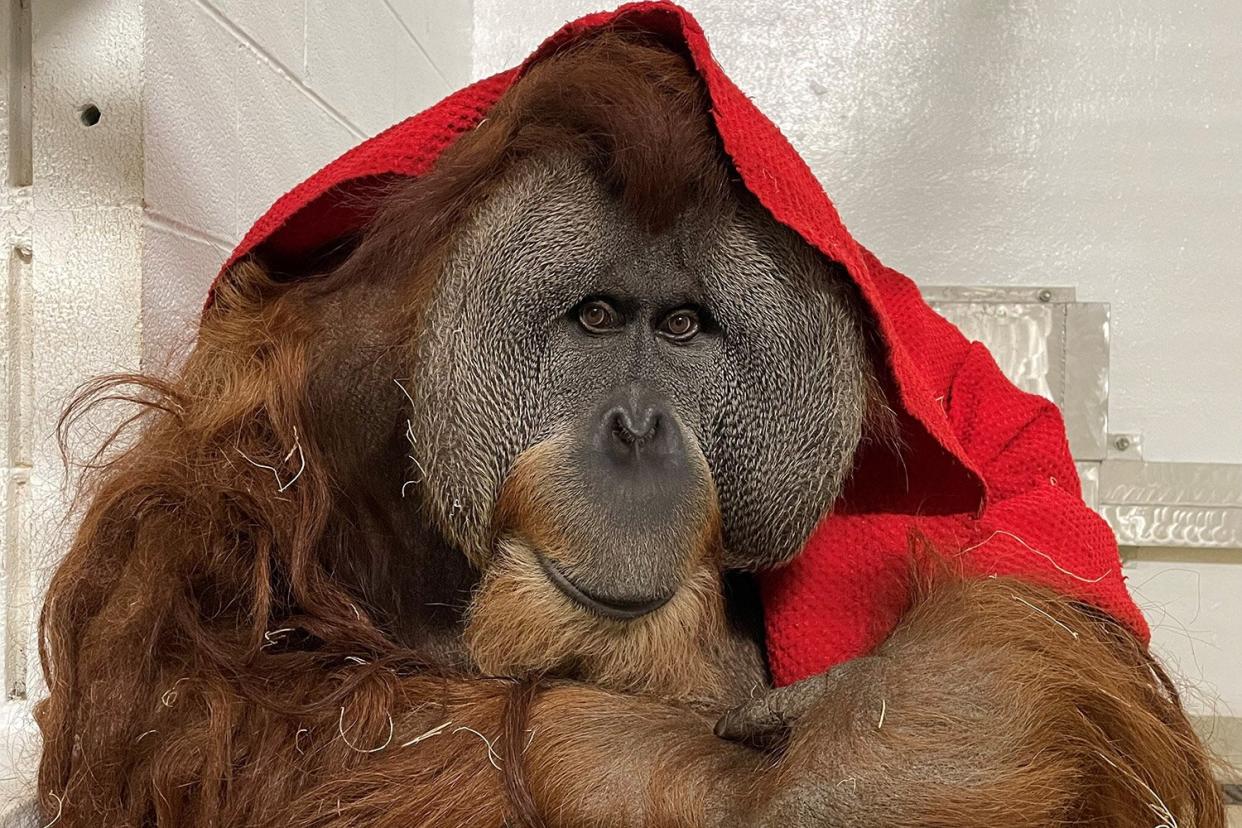Birmingham Zoo's Oliver the Orangutan on the Mend Following Surgery to Remove Tumor

Birmingham Zoo
One resident of the Birmingham Zoo is getting a new lease on life.
A 41-year-old orangutan named Oliver is recovering at the zoo in Birmingham, Alabama, after having surgery to remove a testicular tumor, which doctors determined to be benign after its successful removal, the zoo announced Wednesday.
RELATED: Threatened Greater One-Horned Rhino Population Hits New High After Pandemic Kept Visitors Away
"The procedure went very well, and the mass was found to be a typically benign testicular tumor called a seminoma. Oliver is well on his way to a full recovery," Dr. Stephanie McCain D.V.M., Dipl. ACZM, the Birmingham Zoo's Director of Animal Health, said in a statement.
After Birmingham Zoo officials noticed swelling between Oliver's legs, an ultrasound revealed he had a tumor. Veterinary Specialists of Birmingham sent two surgeons to the zoo to remove the tumor while the zoo's veterinary team focused on administering anesthesia.
The anesthesia posed a risk for Oliver, who was diagnosed with heart disease in 2015. After this diagnosis, the primate developed an irregular heartbeat and had a heart monitor placed in 2017. Heart disease is common in great apes, according to the zoo.
RELATED VIDEO: Zookeeper Introduces Her Newborn Baby to Gorilla at Dallas Zoo
The orangutan's successful procedure comes a month before Oliver's 42nd birthday. One of the oldest Sumatran orangutans in the U.S.'s zoo population, Oliver was born at the San Diego Zoo in 1980 and has resided at the Birmingham Zoo for 35 years, sharing an enclosure with the zoo's female orangutan Lipz and their 10-year-old daughter Nairi.
Orangutans are the only great apes native to the rainforests of Indonesia and Malaysia and can currently only be found in Borneo and Sumatra. The species is now critically endangered due to the ongoing destruction of the tropical rainforest.

